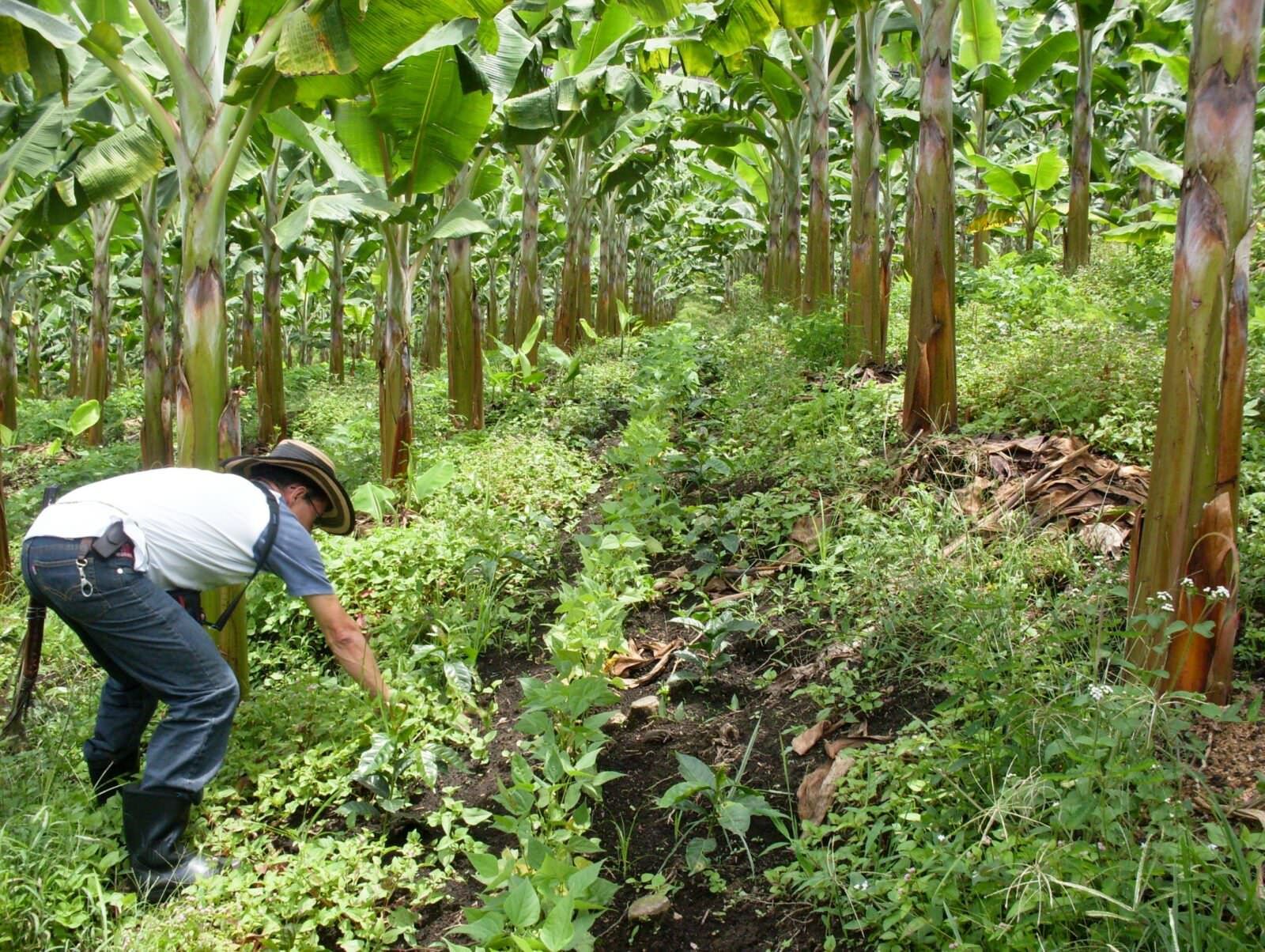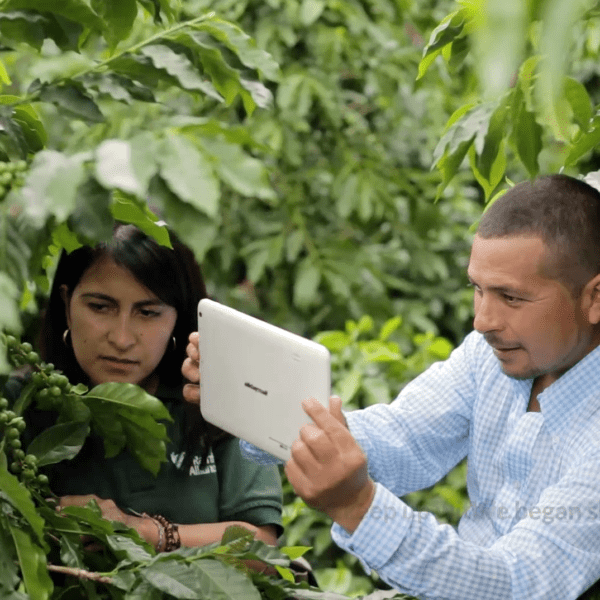All over the world, farmers fight the pests that attack their crops the only way they know how: with pesticides. But some of these harsh chemicals put the health of farmers, their families, and the environment at risk—which is why the Rainforest Alliance works to train farmers in integrated pest management, or natural ways to prevent and control pests.
As part of the Integrated Pest Management (IPM) Coalition, the Rainforest Alliance helped develop the new Pesticides & Alternatives app, where farmers can learn about the toxicity levels of 700 pesticides. The app also features a list of 2,700 agricultural pests and information on how to prevent and control them without pesticides, using data from CABI. Information about pesticide regulations in Mexico, India, Brazil, Colombia, and Kenya, and restrictions from nine sustainable agriculture certification standards, including the Rainforest Alliance and UTZ standards, is also available.
What is Integrated Pest Management?
Integrated pest management is using good agricultural practices and non-chemical measures to reduce pests and disease and avoid the use of chemicals. Examples of natural pest control are both manual—such as regular pruning of infected plants—and biological, such as unleashing a benign fungus to colonize a plant, thereby preventing a destructive fungus from taking up residence. Besides reducing pesticide use, such techniques can also improve soil health, drought resistance, generate higher yields, and save farmers money.
This app isn’t just for farmers. “What’s really exciting about the app is that, while it’s useful for farmers and auditors in sustainable agriculture certification programs, it’s for everyone who wants to help reduce global pesticide use,” says María Angélica Bonilla, standards and assurance senior officer for the Rainforest Alliance.
Developed by experts
“The “Pesticides & Alternatives” app was developed by a coalition of like-minded organizations collaborating to achieve the very important goal of reducing pesticide use,” Bonilla explains. IPM Coalition members include: Better Cotton Initiative, Bonsucro, Fairtrade, Forest Stewardship Council, GEO Foundation, Global Coffee Platform, Roundtable on Sustainable Biomaterials, the Sustainable Agriculture Network (SAN) and the Rainforest Alliance. The development of the app was possible thanks to the technical support from the Oregon State University’s Integrated Plant Protection Center (OSU-IPPC) and the Centre for Agriculture and Bioscience International (CABI), as well as funds from the ISEAL Innovations Fund, supported by the Swiss Confederation.
How to download the app
You can download the free “Pesticides and Alternatives” app from the GooglePlay or iTunes app Store in English, Portuguese, or Spanish. Once it’s downloaded, it can run offline so that farmers can access it wherever they are.




